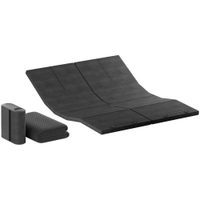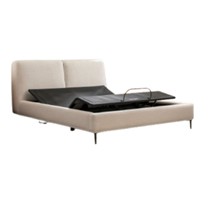What is a zero gravity bed and how do they ease sleep apnea and back pain?
Thinking of buying a zero gravity bed? Here’s everything you need to know
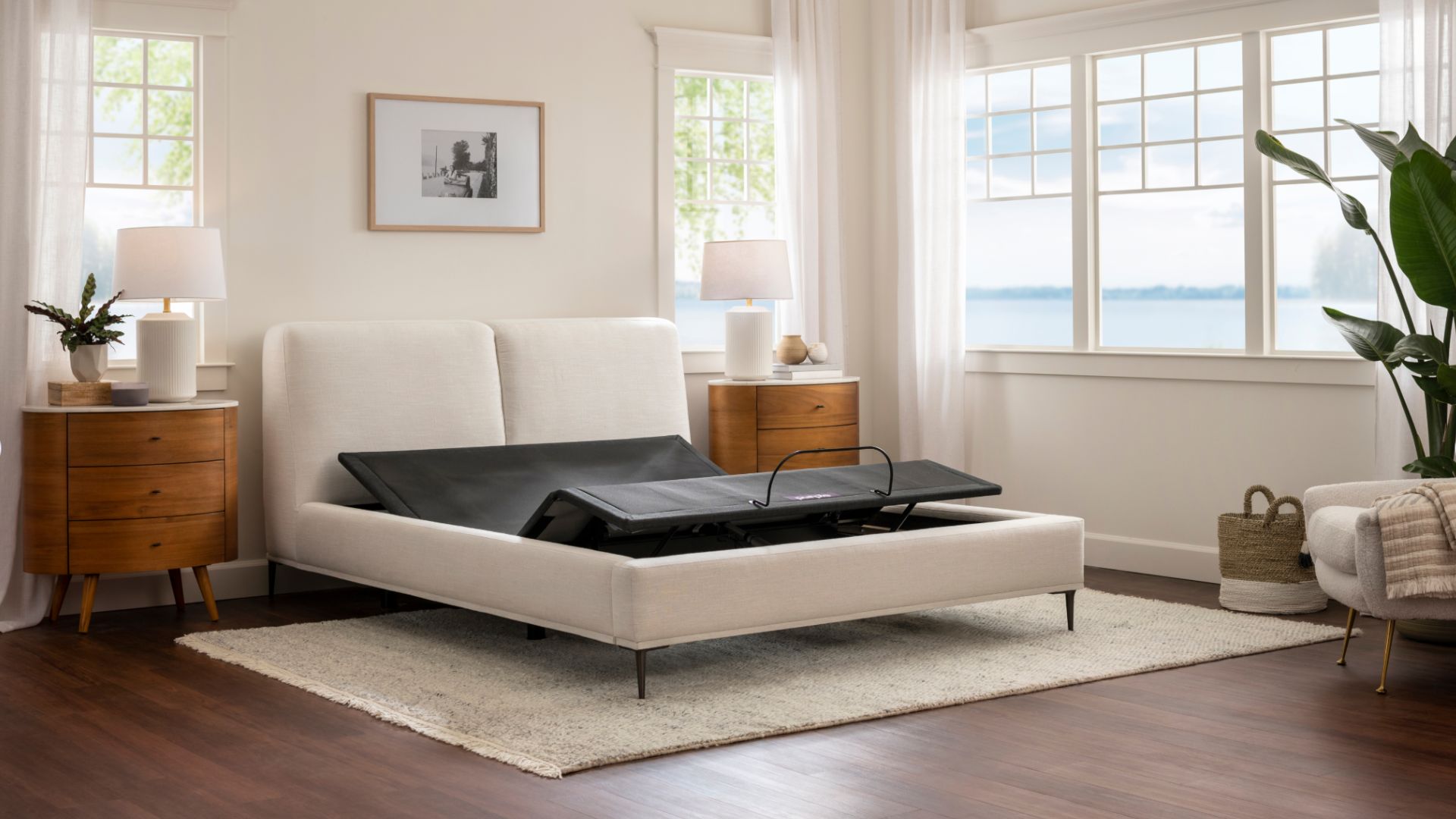
A zero gravity bed is an adjustable bed base that allows you to elevate your head, shoulders and legs into a position that mimics the feeling of weightlessness. A NASA-approved sleep hack, the zero gravity position distributes body weight evenly to relieve pressure on the spine, neck and hips.
The zero gravity position sounds like something associated with space, and that’s because it is. NASA first developed this position to reduce the impact on astronauts' bodies during take-off. It is now used by people who have back pain, heartburn, sleep apnea, painful joints and other issues that sabotage sleep.
Many of this year’s best mattresses offer night after night comfort and pairing them with a zero gravity adjustable bed base will elevate the comfortability they offer. Here, we'll dive into how these beds work, if they're worth the money, and who should (and shouldn’t) buy one.
- Read more: Sleep apnea experts weigh in on the Apple Watch's latest health feature — here's the verdict
What is the zero gravity position for sleep?
In the zero gravity position, your body is placed at a 120-degree angle, with your head, torso, knees and feet slightly elevated above your heart and stomach. Experts refer to this as a neutral position, where your body achieves a state of weightlessness.
It works by eliminating the impact of gravity on your body, all while ensuring you are fully supported from head to toe. It's an immensely relaxing position for sleeping and resting, and is very beneficial for many people whether they have specific health conditions or not.
Many of this year’s best smart beds and adjustable bases come with a zero gravity preset, meaning you can move the bed into that position via the smart bed control panel, be that a remote or compatible mobile app.
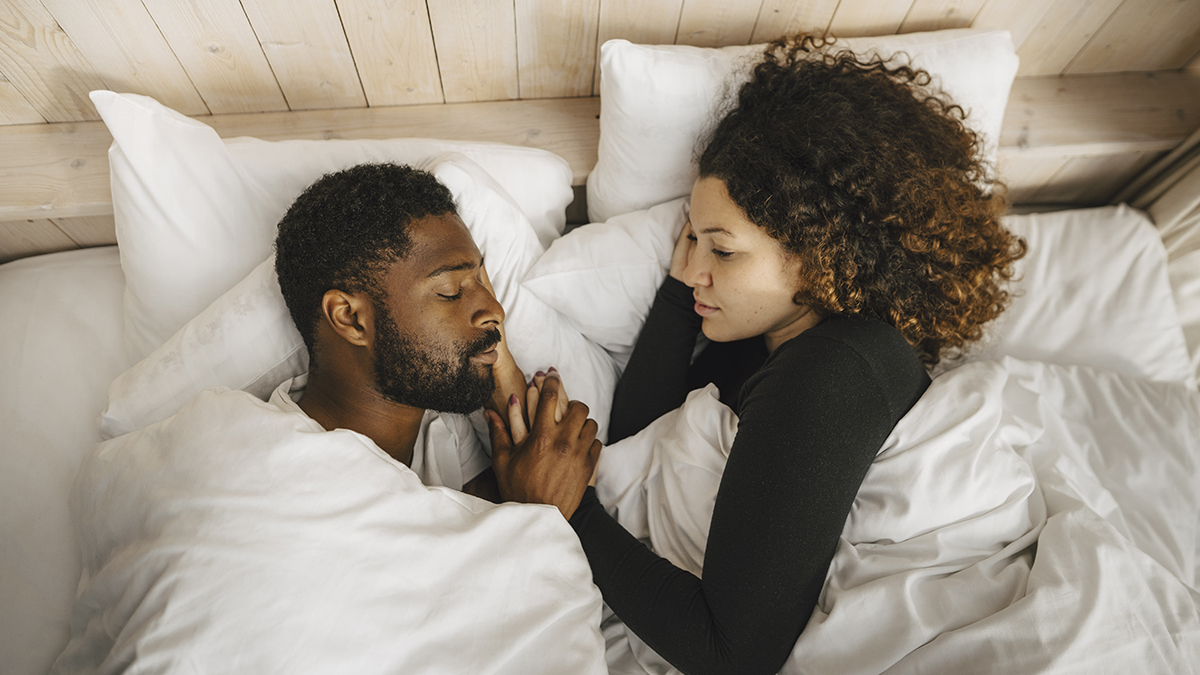
Benefits of sleeping in a zero gravity position
Zero gravity beds are found in hospitals and health centers across the country, and in recent years they've become commonplace in the home too. The benefits of using one to sleep in zero gravity positions are numerous, including reducing excess pressure on your back to relieve pain and boost circulation.
Zero gravity beds were once reserved for clinical settings, but as more people are looking to invest in optimizing their sleep, they’ve become more popular in the home over recent years. And there's a good reason for it, considering the benefits of sleeping in a zero gravity position are numerous.
From easing pressure on the joints to boosting circulation and improving respiratory function, zero gravity sleep positioning can help various sleep vices and health conditions
Firstly, sleeping in a zero gravity position can also help with high blood pressure. Since the head and legs are elevated at just the right angle, the force of gravity and pressure on the heart is reduced.
Naturally tilting your bed back and opening up the airways, adjustable beds with zero gravity can reduce snoring. Side sleeping is the recommended position for snorers. But for snorers who find this position uncomfortable, a zero gravity bed is a great anti-snoring solution where you can still sleep on your back.
Another major benefit of sleeping in zero gravity position is to reduce joint and back pain, whether that pain is chronic or temporary, such as during the third trimester of pregnancy. Zero gravity is very beneficial for your spine, and even 20 minutes spent relaxing in this position each day can help your back heal faster.
A medical study by an American researcher also found that sleeping in the anti gravity position aids digestion, benefiting those who have acid reflux at night.
Additionally, taking pressure off muscles, sleeping in the zero gravity position is beneficial for those who live an active lifestyle as it gives muscles a better chance of recovering overnight.
To summarize, sleeping in a zero gravity position on an adjustable bed can help with the following conditions:
- Reflux, heart burn and digestive issues
- Back pain
- Joint pain
- Arthritis
- Pregnancy discomfort
- Sleep apnea
- Snoring
- Sleep anxiety
- High blood pressure
- Muscle recovery
Do zero gravity beds reduce joint and back pain?
Zero gravity beds are a great investment for sleepers who find themselves tossing and turning due to hip, joint or back pain. This is because, alongside stimulating weightlessness, these beds excel at pressure relief, taking the load off where you need it most, while keeping the spine supported.
According to Mather Hospital, the reclining position alleviates back and joint pain by placing less pressure on the body, especially in the back and shoulders.
Pairing a zero gravity bed base with one of this year’s best mattresses for back pain could provide the perfect solution to your nighttime aches and pains, enabling you to sleep more peacefully.
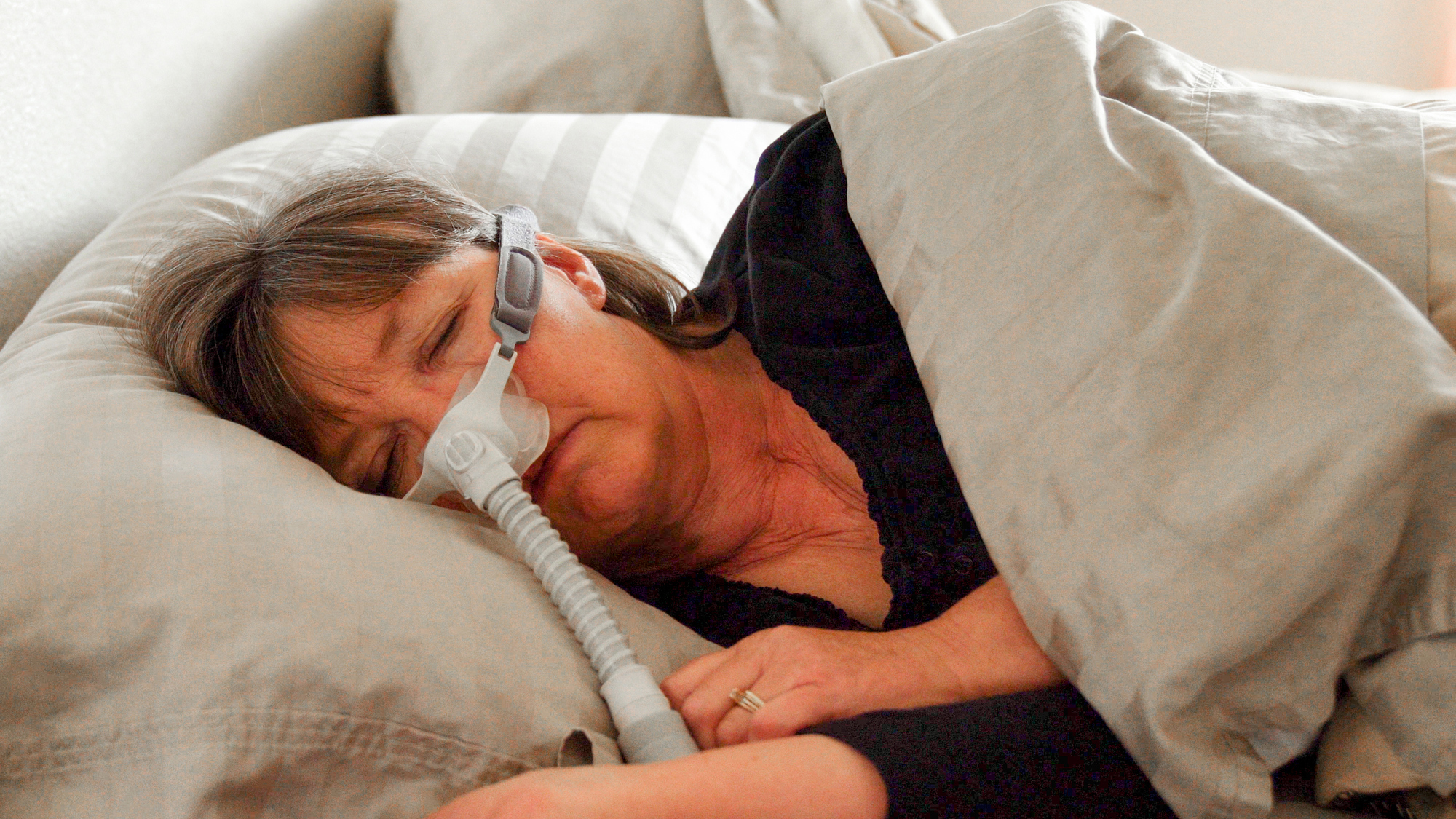
Do zero gravity beds help with sleep apnea?
Sleep apnea is a sleep disorder where the throat relaxes during sleep, blocking the airways and reducing or stopping air from flowing into the lungs. Hence, one of the symptoms of the disorder is snoring.
A 2022 study published in the National Library of Medicine that looks at ‘head-of-bed elevation for improving positional obstructive sleep apnea’ concludes that by adopting a 30° elevated head and trunk position, it is possible to reduce airway collapses, reducing apnea events and improving nightly respiratory outcomes.
When you sleep in the zero gravity position, more air is able to flow through your throat than if you were lying in any other position to sleep, preventing breathing obstruction. This is why people who snore and who have sleep apnea see a reduction in both conditions when sleeping in the zero gravity position on an adjustable bed.
Are zero gravity beds easy to use?
As with most modern adjustable bed bases, zero gravity beds are easy to use thanks to their smart design and handy controls.
Most zero gravity beds come with wireless remote controls or compatible mobile apps where you can control your sleep position settings. This technology means you adjust the bed by the click of a button rather than manually tackling the bed frame.
Some adjustable bed bases can be programmed (via app or remote) so that you can save your favourite positions and inclines, then all you need to do is select the position you want.
Smart beds with specialized snore mitigation will even have sensors to track your respiratory activity through the night and automatically adjust your head position to open airways and mitigate snoring.
Are zero gravity beds expensive?
The price of a good zero gravity bed usually starts from around $700, with prices increasing to several thousand for a Cal king or split king luxury adjustable bed with zero gravity presets, or a smart bed system complete with zero gravity alongside sleep tracking and temperature regulation features.
The best adjustable beds are made by the likes of Tempur-Pedic, Saatva, Nectar, Purple and DreamCloud and are best paired with a quality hybrid mattress or memory foam mattress. These bundles will range wildly in price.
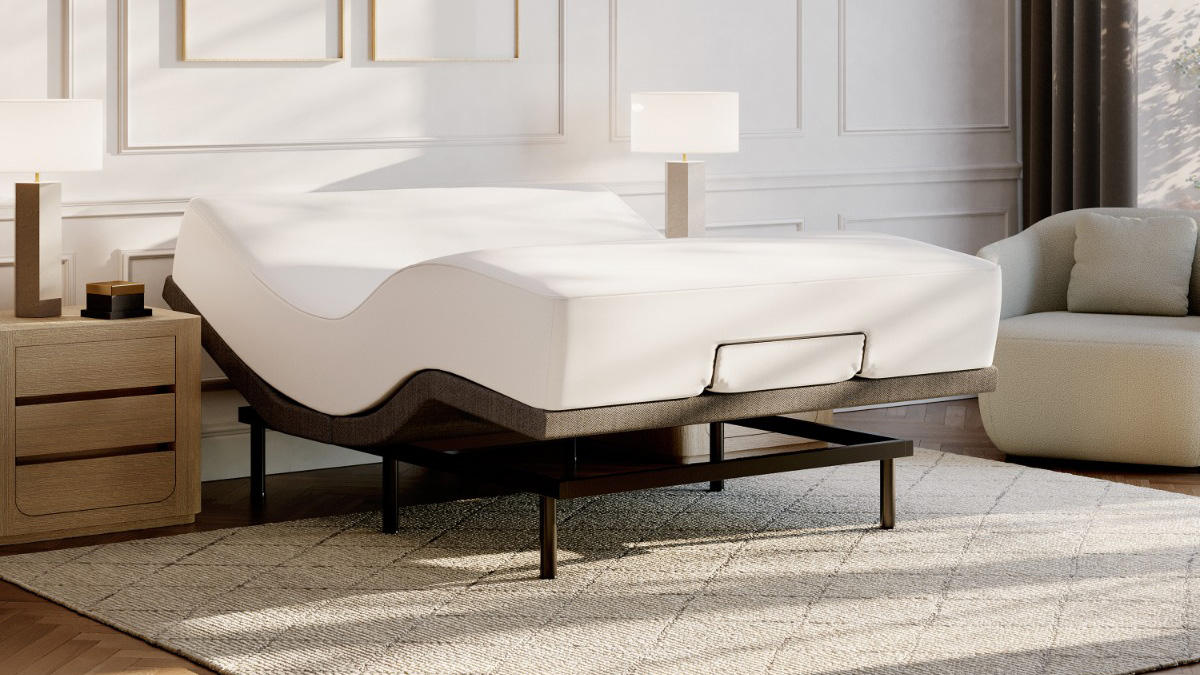
The Nectar Adjustable Frame, for example, offers anti-snoring and zero gravity positions for just $749 for a queen size (was $1,564) with the latest Nectar mattress deals.
By comparison, a queen size Tempur-Pedic Ergo Smart PowerBase costs $1,199. But it is app-controlled and packed with sleep technology like AI sleep tracking and automatic snore response. The current Tempur-Pedic mattress deal adds a $300 instant gift if you buy the base alongside a Tempur-Pedic mattress.
You can usually bag decent savings on zero gravity beds in monthly mattress sales, especially around special sale seasons like Black Friday. Plenty of brands offer free adjustable bed installation too, so the set up process is taken care of for you. Check out our guide to learn more about zero gravity mattress prices and if they're worth the cost.
Buy a zero gravity bed if...
✅Joint pain is keeping you awake: A major benefit of zero gravity sleep positioning is the elimination of pressure build up in joints and muscles. This can alleviate back and muscle pain.
✅You suffer with sleep apnea or snoring: Scientific research shows sleeping with your head and torso elevated can reduce airway collapses and, therefore, sleep apnea episodes and snoring.
✅ You have reduced mobility: People with reduced mobility or those recovering from an injury or surgery could be particularly comfortable sleeping in a zero gravity position. Plus some people find this position helps with getting out of bed.
Don’t buy a zero gravity bed if…
❌ You’re on a tight budget: With such smart technology built in, zero gravity positioning bed bases come with a hefty price tag (that’s on top of the cost of an actual mattress).
❌ You don’t have trouble sleeping: Such an investment purchase might not be necessary for people who sleep soundly in standard sleep positions on level beds.
❌ You’re a combination sleeper: Zero gravity beds typically keep sleepers in one position (back sleeping), so people who like to change positions while sleeping may find it difficult to sleep.
The top 3 zero gravity beds to buy
Zero gravity beds are available to buy from some of the top-rated mattress brands in America. Here are the top deals to shop today…
1. Nectar Premier Adjustable Bed Frame: from $1,331 $699 at Nectar
With independent head and foot elevation and programmable memory, the Nectar Adjustable bed frame is as convenient as it is comfortable. The bed can be controlled through the wireless remote or via app, and Nectar promises that the zero gravity position will improve circulation as well as relieve acid reflux, pressure and mobility issues. This bed frame comes with a 60-night home trial, 2-year warranty, and free shipping and returns. You can buy a queen for $749 (was $1,564, thanks to Nectar’s current sale.
2. Eight Sleep Pod 4 Ultra: from $4,699 $4,549 at Eight Sleep
The Eight Sleep Pod 4 Ultra is one of the top smart bed systems you can buy now. It includes a smart mattress cover and control hub that will track your sleep metrics and independently manage your temperature throughout the night so you sleep undisturbed by hot flushes. Meanwhile, the bed base that fits between your bedframe and mattress offers zero gravity positioning for you to find your ideal sleep position. Eight Sleep mattress sales are never huge. But there's $150 off the Pod 4 Ultra now bringing a queen size to $4,549 (was $4,699), which is a decent saving from this celebrity-endorsed sleep tech brand.
3. Purple Premium Smart Base: from $995 $895.50 with mattress purchase at Purple
The Purple Premium Smart Base promises to upgrade your bedtimes with exceptional tension relief thanks to zero gravity positioning. There's adjustable legs and a zero-clearance platform meaning it will sit in your bed frame without ruining your bedroom aesthetic. There's no discount if you buy the base alone in Purple mattress sales right now. But if you pair it with a Purple mattress, you'll get 10% off, knocking a queen size to $1,075.50 (was $1,195). Plus you'll get free delivery and a 10-year warranty.
Sign up to get the BEST of Tom's Guide direct to your inbox.
Get instant access to breaking news, the hottest reviews, great deals and helpful tips.

Eve is a PPA-accredited journalist with an MA in Magazine Journalism from Cardiff University. She is a Sleep Staff Writer at Tom’s Guide and has four years’ experience writing health features and news. She is particularly interested in the relationship between good sleep and overall health. At Tom’s Guide Eve is responsible for coverage and reviews of sleep tech and is our smart and cooling mattress specialist, focussing on brands such as Eight Sleep and Sleep Number. She also covers general mattress reviews, seeks out the best deals to produce tried-and-tested buyer's guides for sleep accessories and enjoys writing in-depth features about sleep health. She has been involved in rigorous testing procedures for mattress reviews in our Sleep Studio and has interviewed experts including sleep doctors and psychologists. When not covering sleep at Tom's Guide, Eve enjoys writing about health and fitness, food and culture.
- Frances DanielsSenior Sleep Staff Writer
You must confirm your public display name before commenting
Please logout and then login again, you will then be prompted to enter your display name.

